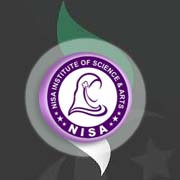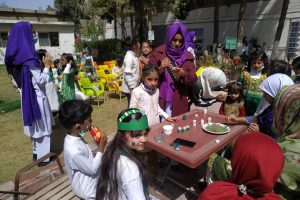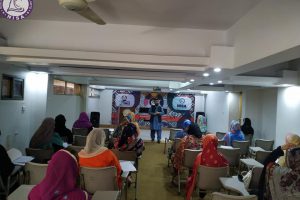Positivity and productivity during COVID-19

In this blog, Tanishka shares the things that helped her to stay positive and productive during the COVID-19 pandemic.
Written by Tanishka P. |
We all started this year with aspirations and dreams that we wished to accomplish. Just like the start to any new year, this year promised new opportunities and experiences. However, COVID-19 pressed pause on our lives and halted some of the goals we had set out to achieve.
Now, we stand at a crossroad. We can either succumb to the darkness this virus has brought into our lives, or we can attempt to rise above it and overcome this hurdle by adapting to this unexpected situation humanity faces.
I too found it difficult to study productively, while also keeping myself mentally and physically healthy. After several breakdowns and numerous study sessions that yielded no fruit, I decided to actively search for ways and methods to overcome these difficulties.
Some that I incorporated into my day-to-day routine include;
1. Having a gratitude list
Simply being grateful for the little things that matter most. I kept a small notebook in which I would write about things I was grateful for such as food on the table, being in good health and being able to access quality education. You could also take five minutes to yourself before you fall asleep to reflect on the positivity around you. It helps generate positive thinking and could improve your mental health.
2. Realistically planning out your day
I list down my goals, for example; one or two chapters I want to cover for a module in that day. It is important to avoid setting unrealistic goals that may demotivate you at the end of the day. At the start of my course, I sometimes felt overwhelmed with the work that was piling up. After setting my goals realistically and spreading my assignments and revision over the week, I felt a sense of accomplishment of having learnt something. This contributed significantly to a more positive mindset and boosted my motivation and efficiency. Top tip: after every chapter, ensure you have covered the learning outcomes listed in the study guide of your respective courses!
3. Note making
I know you might not like to read this because let’s be real, who likes to spend hours at a desk making notes from a multi-volume scholarly book? Not me! But as I saw the content in my courses multiplying as lectures rolled by, I realised that as exam season approaches or any tests or coursework is assigned, I did not want to be spending hours trying to read the small text in my books. I condensed the content into flash cards and mind maps, jotting down important points. This helped me to understand and link content and to identify certain topics that I was finding more challenging. I could then ask for immediate help either from my peers or my teachers if I needed to. This technique is especially useful for management courses or any other qualitative course!
4. Physical activity
Exercise has been proven to reduce stress, combat fatigue and enhance productivity levels. It can be difficult to take up a sport or join a gym during this pandemic, but you can always try going for a jog or a brisk walk.I started doing home workouts and used online videos to incorporate fitness into my routine. Even if it was just 30 minutes a day to break up the daily workload, I would make sure not to miss out on my much-needed workout. Exercising left me feeling refreshed and gave me more energy to study efficiently. Another perk that came with these 30 minutes of activity was the release of endorphins (chemicals that make you feel good), it was a natural energy boost and helped to improve my mental health.
Finally, I would like to say: “procrastination is your enemy!” Be aware of this but please also make sure you are taking enough breaks and being kind to yourself for making it this far, after all, we are living through a global pandemic!








